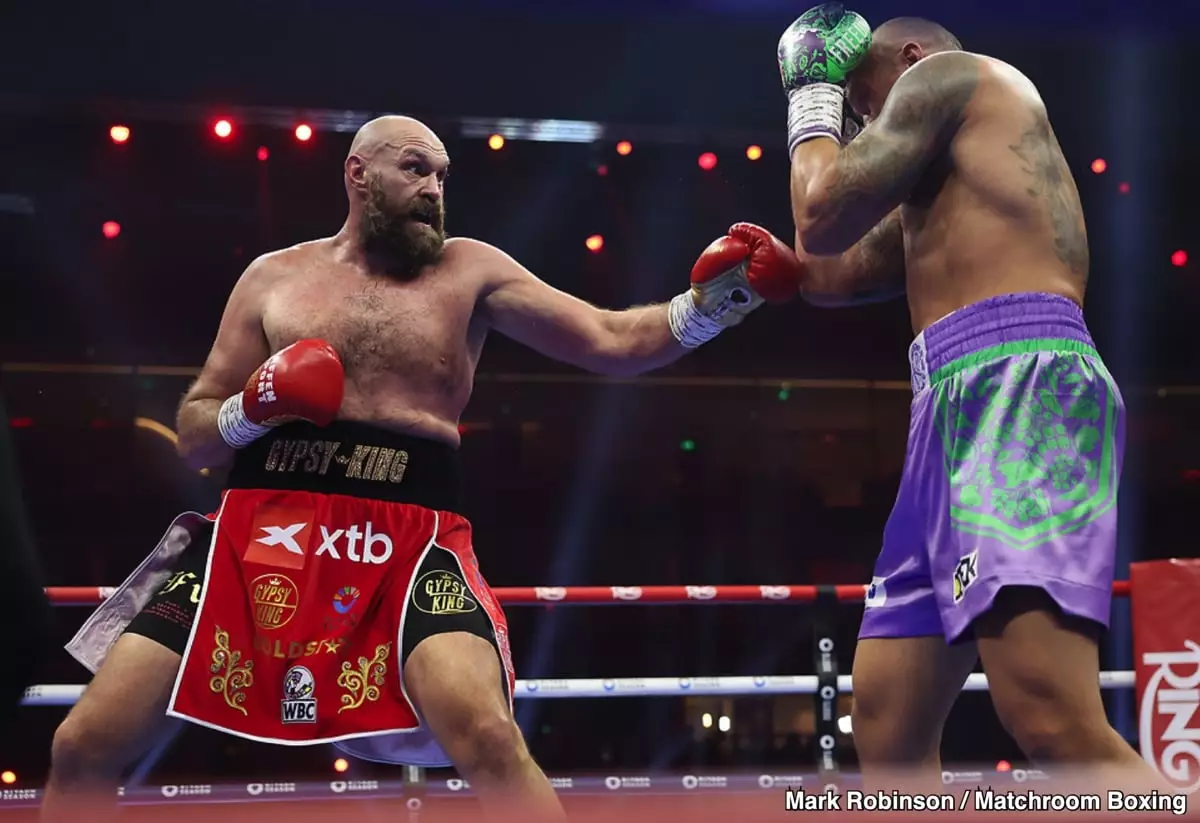The recent heavyweight bout between Tyson Fury and Oleksandr Usyk has stirred considerable discussion among boxing enthusiasts, analysts, and even casual viewers. Frank Warren, a prominent boxing promoter, has revisited the fight and called for a reassessment of the outcome. His observations, while valuable, also underscore a broader narrative about perception in boxing and the nuanced interplay between strategy and execution in the ring.
In assessing the match, Warren acknowledges a shift in his perspective after multiple viewings, claiming that the fight felt “closer” than his initial scorings suggested. This admission reflects a common phenomenon in sports where initial impressions can evolve. However, despite his revised view, he still clings to the belief that Fury deserved the victory—a claim that flies in the face of the judges’ unanimous decision in favor of Usyk. The fight’s scorecards, which revealed scores of 116-112 from each judge, established a clear consensus that Usyk outperformed Fury over the 12 rounds.
The crux of Warren’s argument lies in his assertion that Fury had moments of superiority, particularly at the fight’s outset. Yet, as the bout progressed, it became increasingly evident that Fury was unable to maintain this momentum. Drawing on the judges’ scorecards helps contextualize Fury’s difficulties; he was predominantly unable to secure meaningful exchanges in the latter half of the fight. His reluctance to adhere to strategic guidance from his trainer, SugarHill Steward, particularly in pressing Usyk, exemplifies a tactical error that significantly hindered his chances.
A crucial aspect of any sporting event is the role of coaching and corner strategy, which becomes particularly vital in championship rounds. Warren points out that Steward failed to instill a sense of urgency in Fury when it mattered most. The fighter appeared unaware of the precariousness of his situation, coasting through rounds he needed to win decisively. Were Fury informed more directly of the dire need for aggression, perhaps his approach would have shifted, prompting a more fervent effort to secure a victory.
This raises important questions regarding the efficacy of communication between trainers and fighters. In high-stakes situations, clarity and conviction from a trainer can make the difference between victory and defeat. SugarHill Steward’s purported lack of directness during crucial rounds suggests a missed opportunity to galvanize Fury into a more assertive fighting style—a “kamikaze mode,” as some might call it.
While Warren’s view is undoubtedly a minority opinion, it highlights the often subjective nature of judging in boxing. It is a sport rife with aesthetic interpretation, where abstract ideas of “who won” can differ vastly among fans. Many observers noted that Usyk’s technical prowess and effective counters left Fury struggling to establish his game plan. The general consensus among neutral observers points to Fury being outboxed, leading to a clear path for Usyk’s victory.
In boxing, the perception of skillful execution versus mere aggression can obscure judgment. Fury’s rounded skill set and previous accolades do not automatically lend him favor in every bout—especially against a talented opponent like Usyk. Therefore, Warren’s statement about his prominence in the sport ought to be tempered by an acknowledgment of these broader, more universal observations about performance and outcome.
Ultimately, an honest assessment of any fight, especially one as scrutinized as Fury vs. Usyk, calls for a nuanced understanding that transcends allegiance to fighters or trainers. While Frank Warren seeks to defend Fury’s honor in the wake of his defeat, it should also be an invitation to reflect on the critical aspects of coaching, strategy, and execution within the sport. Fans and analysts alike should embrace such discussions as they contribute to the rich tapestry of boxing history and its ongoing evolution. The call for constructive analysis can help elevate the sport and ensure that fighters, trainers, and fans alike learn from these invaluable lessons.

